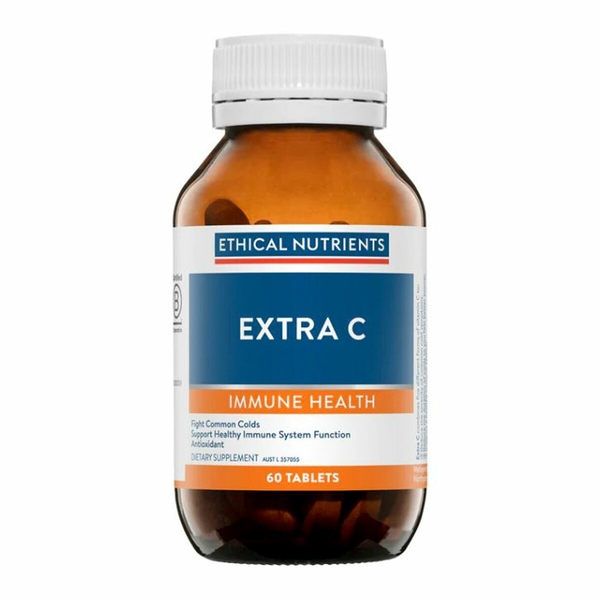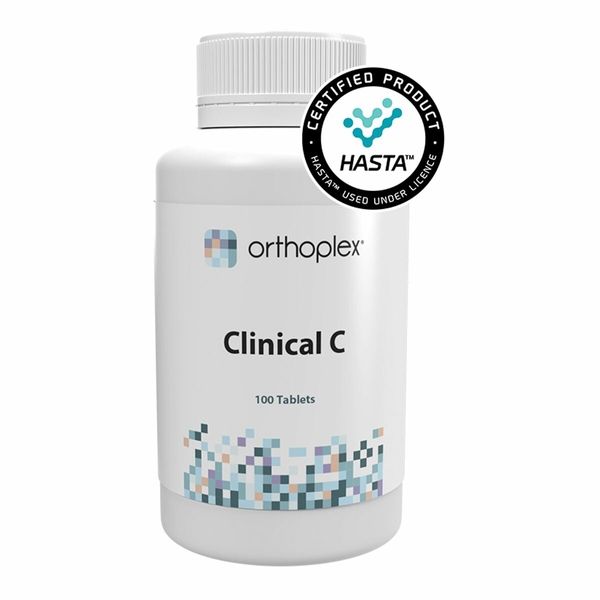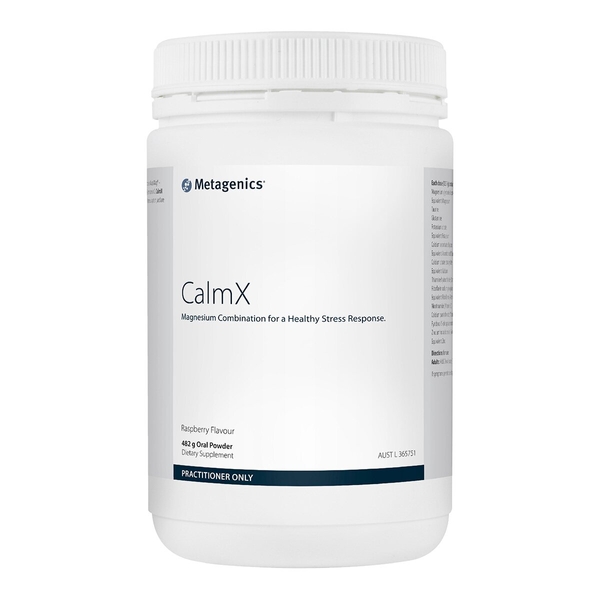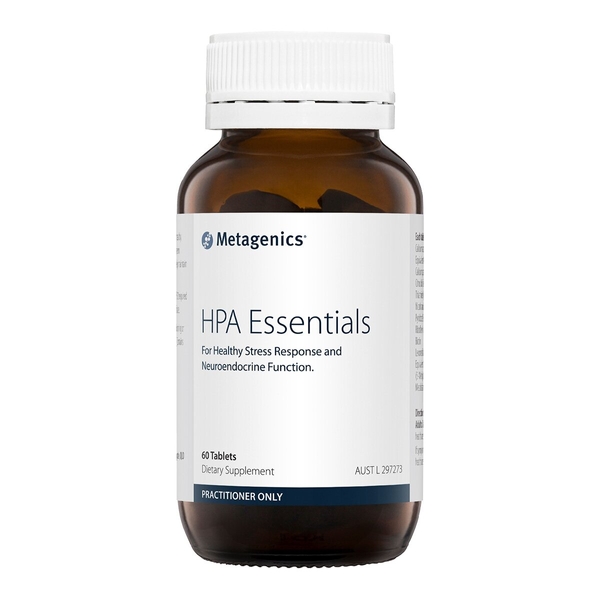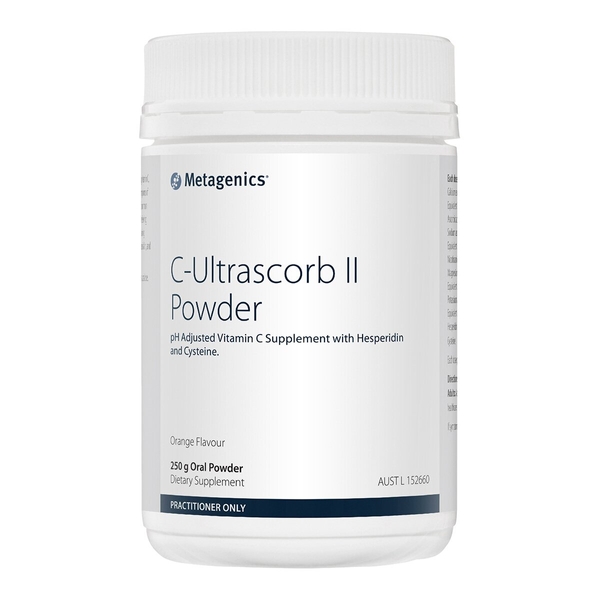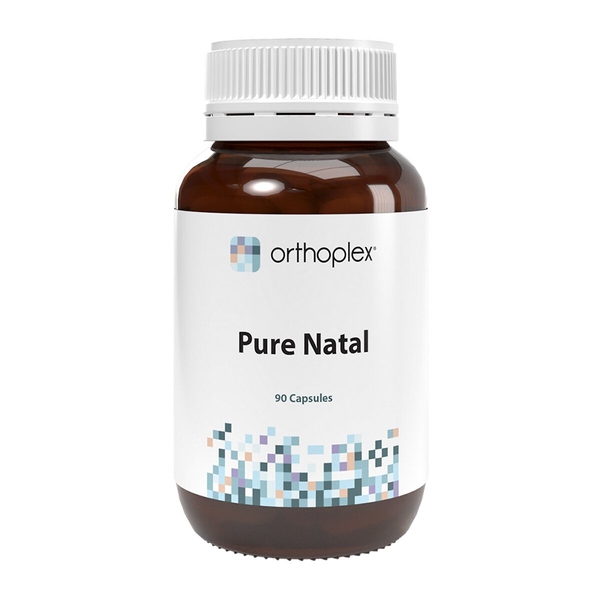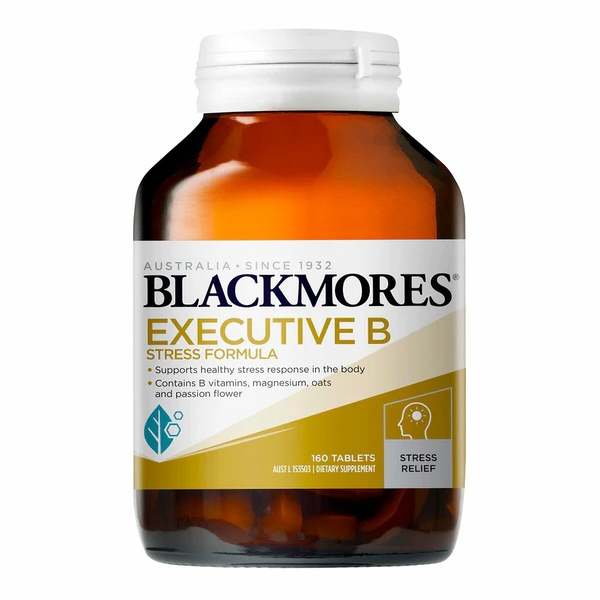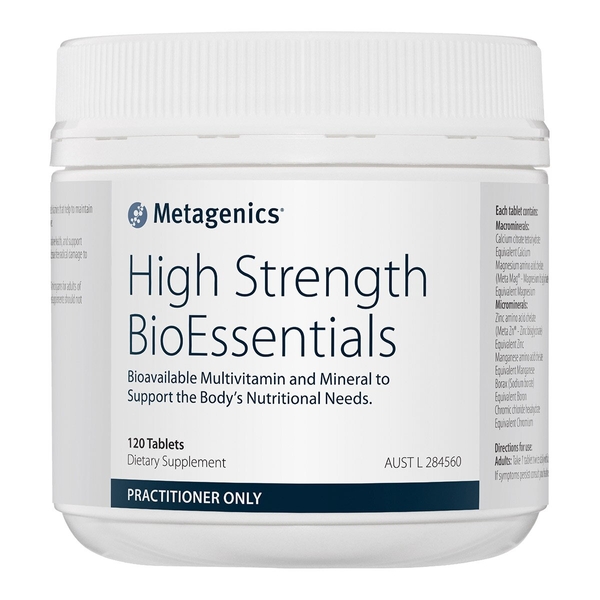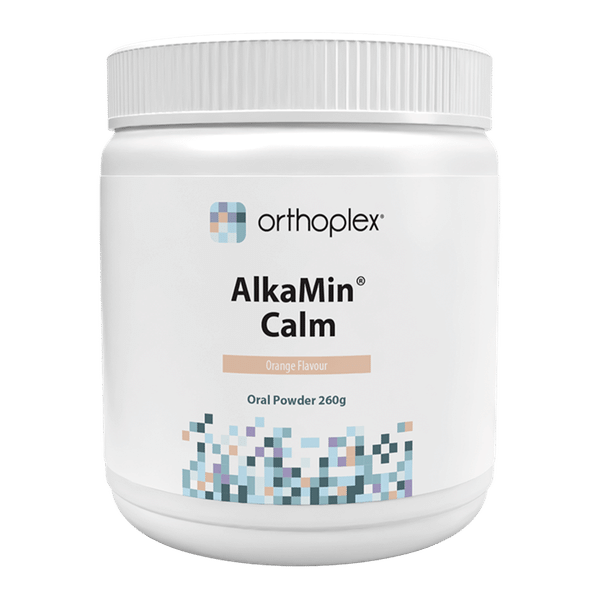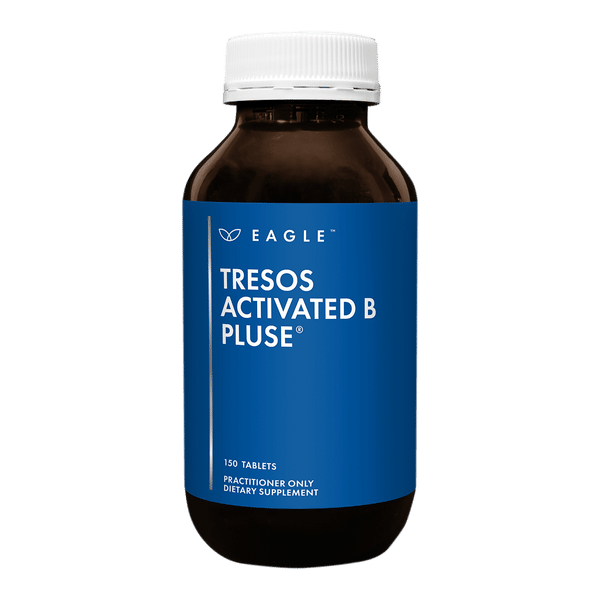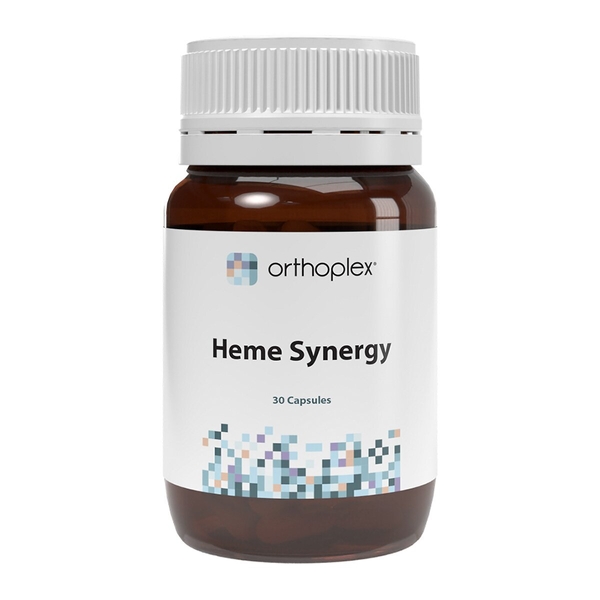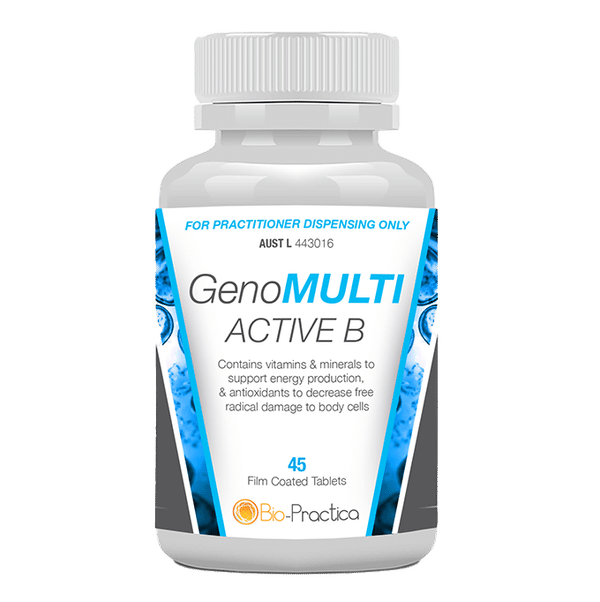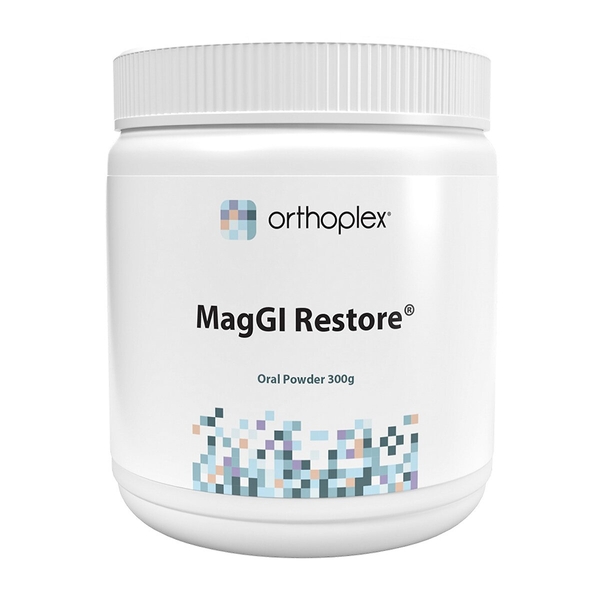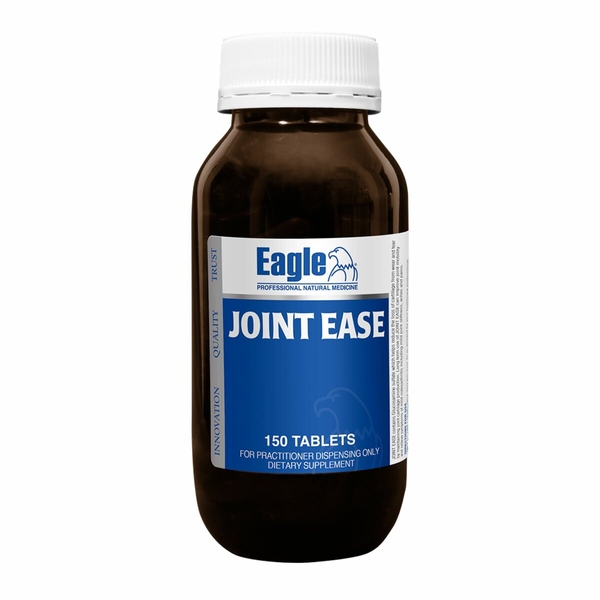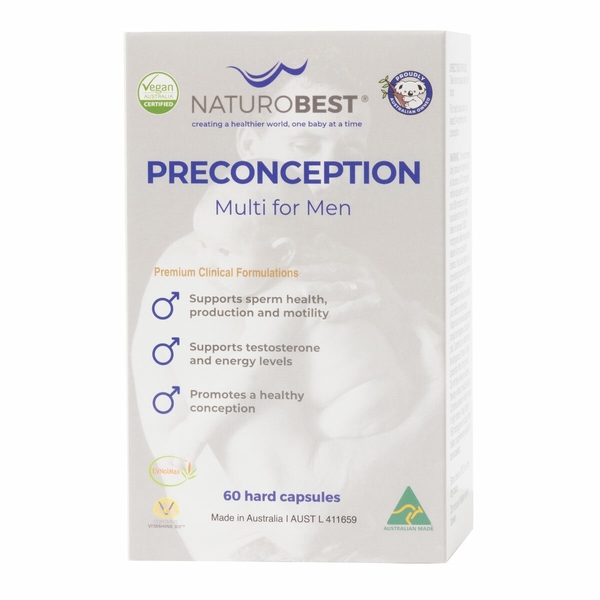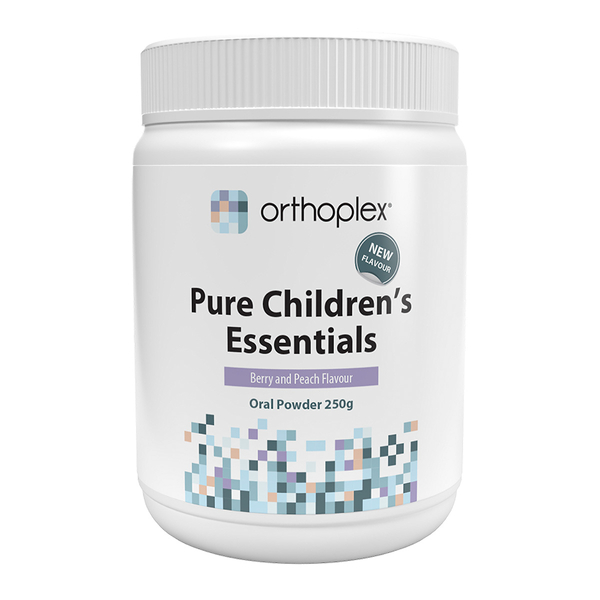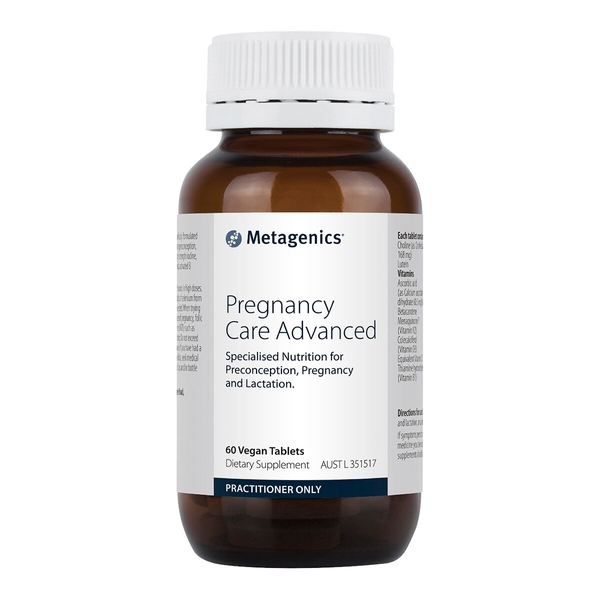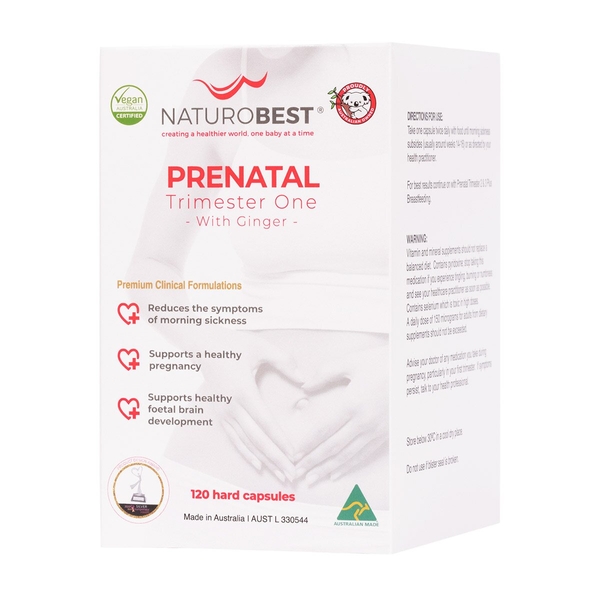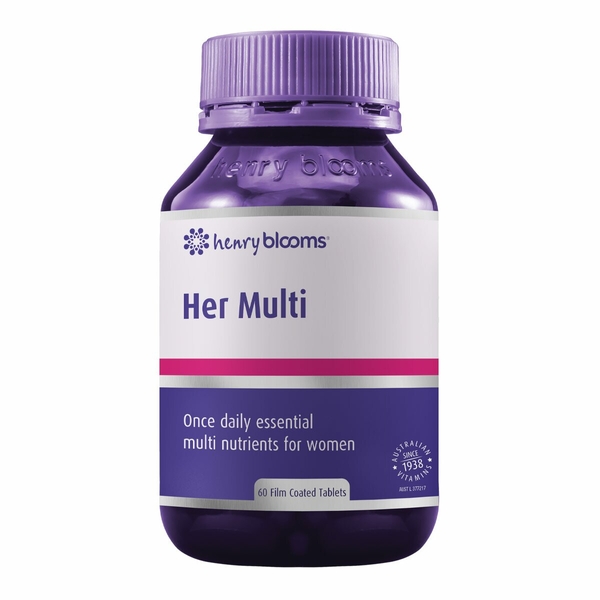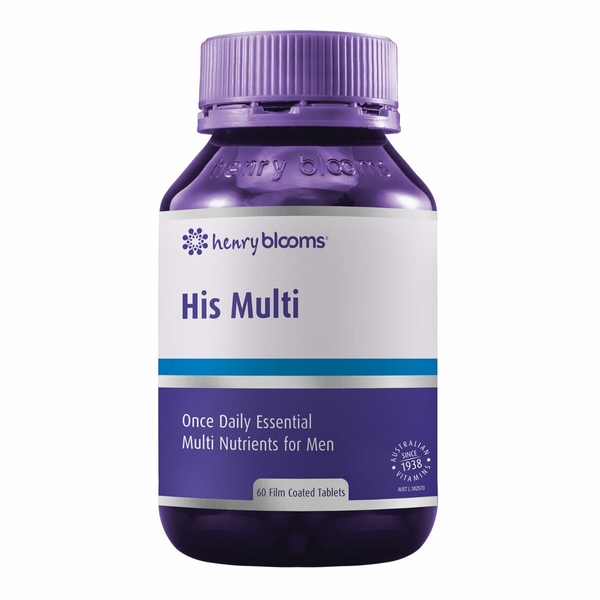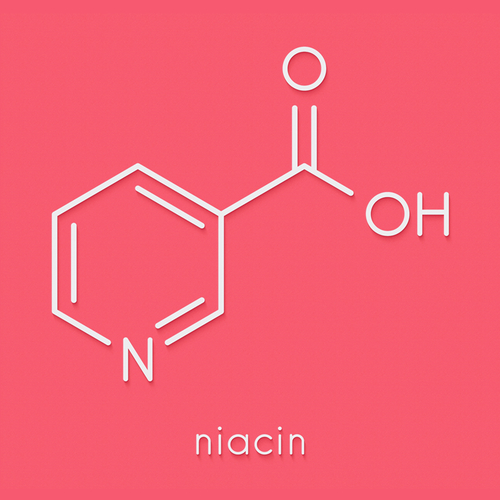
Background
Niacin is required for the proper function of fats and sugars in the body and to maintain healthy cells. At high doses, niacin might help people with heart disease because of its effects on blood clotting. It might also improve levels of fats called triglycerides in the blood.
Prescription forms of niacin are approved by the US FDA for abnormal cholesterol levels and for preventing vitamin B3 deficiency and related conditions such as pellagra. People use niacin supplements for metabolic syndrome, heart disease, cataracts, high blood pressure, and many other conditions, but there is no good scientific evidence to support most of these other uses.
Do not confuse niacin with NADH, niacinamide, inositol nicotinate, IP-6, or tryptophan. These are not the same.
Safety Safety definitions
A common side effect of niacin is a flushing reaction. This might cause burning, itching, and redness of the face, arms, and chest, as well as headaches. Starting with small doses and taking 325 mg of aspirin before each dose of niacin may help. This reaction usually goes away as the body gets used to niacin.
Special Precautions & Warnings:
Pregnancy and breast-feeding: Niacin is likely safe when taken by mouth while pregnant and breast-feeding. The maximum recommended amount of niacin while pregnant or breast-feeding is 30 mg daily in those under 18 years of age, and 35 mg daily for those 19 years and older.Children: Niacin is likely safe when taken by mouth in doses below the tolerable upper intake level (UL) by age. The UL is 10 mg for children 1-3 years of age, 15 mg for children 4-8 years of age, 20 mg for children 9-13 years of age, and 30 mg for children 14-18 years of age.
Allergies: Niacin might worsen allergies by causing histamine to be released. Histamine is the chemical responsible for allergic symptoms.
Chest pain (angina): Niacin should be used cautiously in people with angina.
Diabetes: Niacin might increase blood sugar. People with diabetes who take niacin should check their blood sugar carefully.
Gallbladder disease: Niacin might make gallbladder disease worse.
Gout: Large amounts of niacin might increase the risk for gout.
Kidney disease: Niacin might accumulate in people with kidney disease. This might cause harm.
Liver disease: Taking high doses of niacin might increase liver damage. Don't use large amounts if you have liver disease.
Low blood pressure: Taking niacin in high doses might lower blood pressure and worsen this condition.
Stomach or intestinal ulcers: Niacin might make ulcers worse. Don't use large amounts if you have ulcers.
Surgery: Niacin might interfere with blood sugar control during and after surgery. Speak with your healthcare provider about whether you should stop taking niacin before a scheduled surgery.
Fatty deposits around tendons (tendon xanthomas): Niacin might increase the risk of infections in xanthomas.
Thyroid disorders: Thyroxine is a hormone produced by the thyroid gland. Niacin might lower blood levels of thyroxine. This might worsen symptoms of certain thyroid disorders.
Effectiveness
- Abnormal levels of cholesterol or blood fats (dyslipidemia). Taking niacin prescription products by mouth in doses of 500 mg or more improves cholesterol levels in people with abnormal cholesterol. Dietary supplement forms of niacin usually come in lower doses and don't seem to improve blood fat levels.
- A disease caused by niacin deficiency (pellagra). Niacin prescription products are US FDA approved for preventing and treating pellagra.
- Abnormal levels of blood fats in people with HIV/AIDS. Taking prescription niacin products by mouth seems to improve levels of cholesterol and blood fats called triglycerides in people with this condition. It is unclear if niacin supplements are helpful.
- A grouping of symptoms that increase the risk of diabetes, heart disease, and stroke (metabolic syndrome). Taking prescription niacin products by mouth seems to increase levels of high-density lipoprotein (HDL or "good") cholesterol and reduce levels of blood fats called triglycerides in people with metabolic syndrome. It is unclear if niacin supplements are helpful.
- Heart disease. Taking niacin by mouth does not prevent heart attack or stroke in people with or without heart disease.
Dosing & administration
Niacin is also found in many foods, including meat, fish, milk, eggs, vegetables, and cereals. The amount that should be consumed on a daily basis is called the recommended dietary allowance (RDA). In males 14 years and older, the RDA is 16 mg NE. In females 14 years and older, the RDA is 14 mg NE. While pregnant, the RDA is 18 mg NE. While breast-feeding, the RDA is 17 mg NE. In children, the RDA depends on age. Speak with a healthcare provider to find out what dose might be best for a specific condition.
Interactions with pharmaceuticals
Alcohol (Ethanol)
Interaction Rating=Moderate Be cautious with this combination.
Niacin can cause flushing and itchiness. Consuming alcohol along with niacin might make the flushing and itching worse. There is also some concern that consuming alcohol with niacin might increase the chance of having liver damage.
Allopurinol (Zyloprim)
Interaction Rating=Moderate Be cautious with this combination.
Allopurinol is used to treat gout. Taking large doses of niacin might worsen gout and decrease the effects of allopurinol.
Aspirin
Interaction Rating=Minor Be watchful with this combination.
Aspirin is often used to reduce the flushing caused by niacin. These low doses of aspirin don't seem to cause any issues when taken with niacin. But taking higher doses of aspirin, such as 1 gram daily, might decrease how fast the body gets rid of niacin. This could cause there to be too much niacin in the body and possibly lead to side effects. Stick with lower doses of aspirin, such as 325 mg or less.
Gemfibrozil (Lopid)
Interaction Rating=Moderate Be cautious with this combination.
Taking niacin along with gemfibrozil might increase the risk for muscle damage in some people. Use with caution.
Medications for diabetes (Antidiabetes drugs)
Interaction Rating=Moderate Be cautious with this combination.
High doses of niacin might increase blood sugar levels. Taking niacin along with diabetes medications might reduce the effects of these medications. Monitor your blood sugar closely.
Medications for high blood pressure (Antihypertensive drugs)
Interaction Rating=Moderate Be cautious with this combination.
Niacin might lower blood pressure. Taking niacin along with medications that lower blood pressure might cause blood pressure to go too low. Monitor your blood pressure closely.
Medications that can harm the liver (Hepatotoxic drugs)
Interaction Rating=Moderate Be cautious with this combination.
Niacin might harm the liver. Some medications can also harm the liver. Taking niacin along with a medication that can harm the liver might increase the risk of liver damage.
Medications that slow blood clotting (Anticoagulant / Antiplatelet drugs)
Interaction Rating=Moderate Be cautious with this combination.
Niacin might slow blood clotting. Taking niacin along with medications that also slow blood clotting might increase the risk of bruising and bleeding.
Medications used for lowering cholesterol (Bile acid sequestrants)
Interaction Rating=Moderate Be cautious with this combination.
Some medications called bile acid sequestrants can decrease how much niacin the body absorbs. This might reduce the effects of niacin. Take niacin and these medications at least 4-6 hours apart.
Medications used for lowering cholesterol (Statins)
Interaction Rating=Moderate Be cautious with this combination.
Taking niacin along with statins might increase the risk for muscle damage in some people. Use with caution.
Nicotine patch (Nicoderm)
Interaction Rating=Moderate Be cautious with this combination.
Niacin can sometimes cause flushing and dizziness. Nicotine patches can also cause flushing and dizziness. Taking niacin and using a nicotine patch may increase the risk of flushing and dizziness.
Probenecid (Benemid)
Interaction Rating=Moderate Be cautious with this combination.
Probenecid is used to treat gout. Taking large doses of niacin might worsen gout and decrease the effects of probenecid.
Sulfinpyrazone (Anturane)
Interaction Rating=Moderate Be cautious with this combination.
Sulfinpyrazone is used to treat gout. Taking large doses of niacin might worsen gout and decrease the effects of sulfinpyrazone.
Thyroid hormone
Interaction Rating=Moderate Be cautious with this combination.
The body naturally produces thyroid hormones. Niacin might decrease thyroid hormone levels. Taking niacin with thyroid hormone pills might decrease the effects of thyroid hormone.
Interactions with herbs & supplements
Chromium: Taking niacin and chromium together might lower blood sugar. If you have diabetes and take chromium and niacin supplements together, monitor your blood sugar to make sure it doesn't get too low.
Herbs and supplements that might harm the liver: Niacin might harm the liver. Taking it with other supplements that can also harm the liver might increase the risk of liver damage. Examples of supplements with this effect include garcinia, greater celandine, green tea extract, kava, and kratom.
Herbs and supplements that might lower blood pressure: Niacin might lower blood pressure. Taking it with other supplements that have the same effect might cause blood pressure to drop too much. Examples of supplements with this effect include andrographis, casein peptides, L-arginine, niacin, and stinging nettle.
Herbs and supplements that might slow blood clotting: Niacin might slow blood clotting and increase the risk of bleeding. Taking it with other supplements with similar effects might increase the risk of bleeding in some people. Examples of supplements with this effect include garlic, ginger, ginkgo, nattokinase, and Panax ginseng.
Selenium: Taking niacin along with antioxidants, including selenium, might reduce the beneficial effects that niacin has on cholesterol levels.
Vitamin C: Taking niacin along with antioxidants, including vitamin C, might reduce the beneficial effects that niacin has on cholesterol levels.
Vitamin E: Taking niacin along with antioxidants, including vitamin E, might reduce the beneficial effects that niacin has on cholesterol levels.
Zinc: People who are malnourished and have niacin deficiency, such as those with alcohol use disorder, make extra niacin if they take zinc. There might be an increased risk of niacin-related side effects such as flushing and itching if niacin and zinc are taken together.
Interactions with foods
Products
View all products- Calcium ascorbate dihydrate (Vitamin C) 799 mg equiv. ascorbic acid 660 mg
- Ascorbic acid (Vitamin C) 151 mg
- Sodium ascorbate (Vitamin C) 138 mg equiv. ascorbic acid 123 mg
- Potassium ascorbate (Vitamin C) 22 mg equiv. ascorbic acid 17 mg
- Magnesium ascorbate monohydrate (Vitamin C) 55 mg equiv. ascorbic acid 49 mg
- Nicotinamide (Vitamin B3) 25 mg
- Citrus bioflavonoids extract 18 mg
- Cysteine hydrochloride monohydrate 11 mg
- Total Ascorbic acid 1 g
- Calcium ascorbate dihydrate (Vitamin C) 726 mg equiv. ascorbic acid 600 mg
- Sodium ascorbate (Vitamin C) 452 mg equiv. ascorbic acid 400 mg
- Nicotinamide (Vitamin B3) 5 mg
- Glutathione 10 mg
- Rutin (Rutoside) 25 mg
- Citrus bioflavonoids extract 25 mg
- R-alpha lipoic acid 20 mg
- Selenomethionine 38 μg equiv. selenium 15 μg
- Pyridoxal 5-phosphate (P5P) 2.19 mg equiv. pyridoxine 1.5 mg
- Palm tocotrienols complex (Vitamin E) 2 mg
- Calcium ascorbate dihydrate (Vitamin C) 605 mg equiv. ascorbic acid 500 mg
- Nicotinamide (Vitamin B3) 25 mg
- Magnesium bisglycinate 3.5 g equiv. magnesium 350 mg
- Taurine 3 g
- Potassium citrate 275 mg equiv. potassium 100 mg
- L-glutamine 2 g
- Thiamine hydrochloride (Vitamin B1) 25 mg
- Riboflavin 5-phosphate sodium (Activated B2) 34 mg equiv. riboflavin 25 mg
- Calcium pantothenate (Vitamin B5) 25 mg
- Pyridoxal 5-phosphate monohydrate (P5P) 25 mg equiv. pyridoxine 16 mg
- Zinc bisglycinate (Zinc amino acid chelate) 50 mg equiv. zinc 10 mg
- Calcium citrate tetrahydrate 711 mg equiv. calcium 150 mg
- Calcium ascorbate dihydrate (Vitamin C) 545 mg equiv. ascorbic acid 450 mg
- Nicotinamide (Vitamin B3) 50 mg
- Pyridoxal 5-phosphate monohydrate (P5P) 50 mg equiv. pyridoxine 32.5 mg
- Levomefolate calcium (Activated folate) 217 μg equiv. levomefolic acid 200 μg
- Co-methylcobalamin (Vitamin B12) 200 μg
- Calcium pantothenate (Vitamin B5) 300 mg
- Citrus bioflavonoids extract 50 mg
- Thiamine hydrochloride (Vitamin B1) 50 mg
- Riboflavin 5-phosphate sodium (Activated B2) 20 mg
- Biotin 500 μg
- Calcium ascorbate (Vitamin C) 518 mg equiv. ascorbic acid 425.6 mg
- Ascorbic acid (Vitamin C) 397 mg
- Sodium ascorbate (Vitamin C) 148.5 mg equiv. ascorbic acid 131.2 mg
- Magnesium ascorbate (Vitamin C) 71 mg equiv. ascorbic acid 63.7 mg
- Potassium ascorbate (Vitamin C) 25.5 mg equiv. ascorbic acid 18 mg
- Nicotinamide (Vitamin B3) 100 mg
- Citrus bioflavonoids extract 16.7 mg
- L-cysteine 6.8 mg
- Magnesium ascorbate monohydrate (Vitamin C) 168 mg equiv. ascorbic acid 151 mg equiv. magnesium 10.4 mg
- Calcium ascorbate dihydrate (Vitamin C) 182 mg equiv. ascorbic acid 150 mg equiv. calcium 17 mg
- Nicotinamide (Vitamin B3) 35 mg
- Cholecalciferol (Vitamin D3) 25 μg equiv. vitamin D 1000 IU
- Levomefolate calcium (Activated folate) 325 μg equiv. levomefolic acid 300 μg
- Folic acid 200 μg
- Mecobalamin (Vitamin B12) 400 μg
- Potassium iodide 353.17 μg equiv. iodine 270 μg
- Zinc citrate dihydrate 38.34 mg equiv. zinc 12.3 mg
- Iron bisglycinate 35.4 mg equiv. iron 8 mg
- Beta-carotene carotenoids (Vitamin A) 3 mg
- Thiamine nitrate (Vitamin B1) 30 mg equiv. thiamine 24.32 mg
- Riboflavin 5-phosphate sodium (Activated B2) 20 mg equiv. riboflavin 15.2 mg
- Calcium pantothenate (Vitamin B5) 40 mg equiv. pantothenic acid 36.64 mg
- Pyridoxine hydrochloride (Vitamin B6) 30 mg equiv. pyridoxine 24.68 mg
- Pyridoxal 5-phosphate (P5P) 11 mg equiv. pyridoxine 7.53 mg
- Biotin 300 μg
- Choline bitartrate 100 mg
- Inositol 50 mg
- Chromium nicotinate 200 μg equiv. chromium 25 μg
- Chromium picolinate 200 μg equiv. chromium 25 μg
- Phytomenadione (Vitamin K1) 70 μg
- Manganese amino acid chelate 10 mg equiv. manganese 1 mg
- Silica - colloidal anhydrous 10 mg equiv. silicon 4.67 mg
- Selenomethionine 150 μg equiv. selenium 60 μg
- Menaquinone 7 (Vitamin K2) 20 μg
- Calcium hydrogen phosphate dihydrate 6.32 mg equiv. calcium 1.47 mg
- Molybdenum trioxide 75 μg equiv. molybdenum 50 μg
- Calcium ascorbate dihydrate (Vitamin C) 145 mg equiv. ascorbic acid 130 mg
- Nicotinamide (Vitamin B3) 100 mg
- Thiamine hydrochloride (Vitamin B1) 75 mg
- Riboflavin (Vitamin B2) 10 mg
- Calcium pantothenate (Vitamin B5) 75 mg equiv. pantothenic acid 68.8 mg
- Pyridoxine hydrochloride (Vitamin B6) 25 mg equiv. pyridoxine 20.6 mg
- Cyanocobalamin (Vitamin B12) 30 µg
- Avena sativa ext. 25 mg
- Passiflora incarnata ext. 20 mg
- Biotin 20 µg
- d-alpha-Tocopheryl acid succinate 41.3 mg equiv. vitamin E 50 µg
- Magnesium phosphate pentahydrate 140 mg equiv. magnesium 28.9 mg
- Calcium phosphate 100 mg equiv. calcium 37 mg
- Potassium phosphate monobasic 117.3 mg equiv. potassium 33.7 mg
- Folic acid 150 µg
- Choline bitartrate 25 mg
- Inositol 25 mg
- Lecithin 50 mg
- Calcium ascorbate dihydrate (Vitamin C) 153 mg equiv. ascorbic acid 125 mg
- Nicotinamide (Vitamin B3) 25 mg
- Levomefolate calcium (Activated folate) 216 μg equiv. levomefolic acid 200 μg
- Co-methylcobalamin (Vitamin B12) 250 μg
- Calcium citrate tetrahydrate 610 mg equiv. calcium 125 mg
- Manganese amino acid chelate 17 mg equiv. manganese 2.75 mg
- Borax 13 mg equiv. boron 1.5 mg
- Chromium chloride hexahydrate 513 μg equiv. chromium 100 μg
- Potassium iodide 98 μg equiv. iodine 75 μg
- Selenomethionine 93 μg equiv. selenium 37.5 μg
- d-alpha-Tocopheryl acid succinate 16 mg equiv. vitamin E 12.5 mg
- Beta-carotene carotenoids (Vitamin A) 2 mg
- Phytomenadione (Vitamin K1) 8.75 μg
- Calcium pantothenate (Vitamin B5) 37.5 mg
- Thiamine hydrochloride (Vitamin B1) 25 mg
- Riboflavin 5-phosphate sodium (Activated B2) 25 mg
- Pyridoxal 5-phosphate monohydrate (P5P) 25 mg
- Biotin 50 μg
- Magnesium bisglycinate 525 mg equiv. magnesium 52.5 mg
- Zinc bisglycinate (Zinc amino acid chelate) 50 mg equiv. zinc 10 mg
- Iron bisglycinate 12.5 mg equiv. iron 2.5 mg
- Calcium ascorbate dihydrate (Vitamin C) 1.22 g equiv. ascorbic acid 1 g equiv. calcium 114 mg
- Nicotinamide (Vitamin B3) 25 mg
- Magnesium citrate 1.94 g equiv. magnesium 300 mg
- Potassium citrate 553 mg equiv. potassium 200 mg
- Calcium citrate 1.82 g equiv. calcium 400 mg
- Zinc citrate dihydrate 77.9 mg equiv. zinc 25 mg
- Selenomethionine 78 µg equiv. selenium 31.5 µg
- Taurine 3 g
- Glycine 2 g
- Thiamine hydrochloride (Vitamin B1) 25.4 mg equiv. thiamine 20 mg
- Riboflavin 5-phosphate sodium (Activated B2) 13.2 mg equiv. riboflavin 10 mg
- Calcium pantothenate (Vitamin B5) 32.8 mg equiv. pantothenic acid 30 mg equiv. calcium 2.73 mg
- Pyridoxal 5-phosphate monohydrate (P5P) 78.4 mg equiv. pyridoxine 50 mg
- Biotin 500 µg
- Molybdenum trioxide 90 µg equiv. molybdenum 60 µg
- Chromium chloride hexahydrate 507 µg equiv. chromium 100 µg
- Menaquinone 7 (Vitamin K2) 45 µg
- Calcium ascorbate dihydrate (Vitamin C) 121.7 mg equiv. ascorbic acid 100 mg equiv. calcium 11.44 mg
- Nicotinamide (Vitamin B3) 220 mg
- Nicotinic acid (Vitamin B3) 5 mg
- Thiamine hydrochloride (Vitamin B1) 50 mg equiv. thiamine 44.6 mg
- Pyridoxine hydrochloride (Vitamin B6) 48.62 mg equiv. pyridoxine 40 mg
- Riboflavin 5-phosphate sodium (Activated B2) 27.4 mg equiv. riboflavin 20 mg
- Mecobalamin (Vitamin B12) 500 μg
- Selenomethionine 65 μg equiv. selenium 26 μg
- Retinol acetate 884 μg equiv. vitamin A 750 μg RE
- Calcium pantothenate (Vitamin B5) 100 mg equiv. pantothenic acid 91.6 mg equiv. calcium 8.4 mg
- Calcium folinate (Activated folate) 278 μg equiv. folinic acid 200 μg
- Levomefolate calcium (Activated folate) 216 μg equiv. levomefolic acid 200 μg
- Cholecalciferol 2.5 μg equiv. vitamin D3 100 IU
- d-alpha-Tocopheryl acid succinate 28 mg equiv. vitamin E 34 IU
- Tocopherols concentrate - mixed (low-alpha type) 13.5 mg
- R,S-alpha lipoic acid 10 mg
- Biotin 150 μg
- Ananas comosus (Bromelain) 6 mg
- Choline bitartrate 40 mg
- Cysteine hydrochloride monohydrate 21.74 mg equiv. cysteine 15 mg
- L-glutamine 40 mg
- Citrus bioflavonoids extract 5 mg
- Inositol 25 mg
- Lecithin 15 mg
- Rutin (Rutoside) 10 mg
- Taurine 85 mg
- Chromium nicotinate 205 μg equiv. chromium 25 μg
- Potassium iodide (Iodine) 41 μg equiv. iodine 31 μg equiv. potassium 9.6 μg
- Magnesium phosphate pentahydrate 50 mg equiv. magnesium 10 mg
- Manganese amino acid chelate 250 μg equiv. manganese 50 μg
- Potassium phosphate dibasic 31.82 mg equiv. potassium 14 mg
- Zinc amino acid chelate 72 mg equiv. zinc 14.4 mg
- Molybdenum trioxide 75 μg equiv. molybdenum 50 μg
- Rosa canina ext. 10 mg
- Pyridoxal 5-phosphate monohydrate (P5P) 10 mg equiv. pyridoxine 6.38 mg
- Citrus bioflavonoids extract 5 mg
- Lysine hydrochloride 35 mg equiv. lysine 27.45 mg
- Copper gluconate 43 μg equiv. copper 6 μg
- Calcium ascorbate dihydrate (Vitamin C) 121.7 mg equiv. ascorbic acid 100 mg
- Nicotinamide (Vitamin B3) 20 mg
- Iron bisglycinate 88.8 mg equiv. iron 24 mg
- Retinol acetate (Vitamin A) 0.88 mg equiv. vitamin A 2500 IU equiv. vitamin A 750 μgRE
- Riboflavin 5-phosphate sodium (Activated B2) 10.39 mg equiv. riboflavin 7.6 mg
- Calcium folinate (Activated folate) 110 μg equiv. folinic acid 100 μg
- Levomefolate calcium (Activated folate) 108.69 μg equiv. levomefolic acid 100 μg
- Hydroxocobalamin (Vitamin B12) 200 μg
- Pyridoxal 5-phosphate monohydrate (P5P) 5 mg equiv. pyridoxine 3.19 mg
- Thiamine hydrochloride (Vitamin B1) 5 mg equiv. thiamine 3.93 mg
- Biotin 100 μg
- Calcium pantothenate (Vitamin B5) 10 mg equiv. pantothenic acid 9.2 mg
- Mecobalamin (Vitamin B12) 200 μg
- Calcium ascorbate dihydrate (Vitamin C) 121 mg equiv. ascorbic acid 100 mg
- Nicotinamide (Vitamin B3) 100 mg
- Mecobalamin (Vitamin B12) 150 μg
- Hydroxocobalamin (Vitamin B12) 350 μg
- Cholecalciferol 12.5 μg equiv. vitamin D3 500 IU
- d-alpha-Tocopheryl acid succinate (Vitamin E) 24.6 mg equiv. d-alpha-tocopherol 29.8 IU
- Zinc citrate dihydrate 46.7 mg equiv. zinc 15 mg
- Beta-carotene carotenoids (Vitamin A) 3 mg
- Thiamine hydrochloride (Vitamin B1) 50 mg equiv. thiamine 39.3 mg
- Riboflavin 5-phosphate sodium (Activated B2) 34.2 mg equiv. riboflavin 25 mg
- Calcium pantothenate (Vitamin B5) 109 mg equiv. pantothenic acid 100 mg
- Pyridoxal 5-phosphate monohydrate (P5P) 31.4 mg equiv. pyridoxine 20 mg
- Levomefolate calcium (Activated folate) 434 μg equiv. levomefolic acid 400 μg
- Calcium folinate (Activated folate) 109 μg equiv. folinic acid 100 μg
- Biotin 150 μg
- Choline dihydrogen citrate 56.5 mg
- Menaquinone 7 (Vitamin K2) 25 μg
- Chromium nicotinate 402 μg equiv. chromium 50 μg
- Manganese amino acid chelate 5 mg equiv. manganese 500 μg
- Molybdenum trioxide 90 μg equiv. molybdenum 60 μg
- Potassium iodide 131 μg equiv. iodine 100 μg
- Sodium selenate 179 μg equiv. selenium 75 μg
- Reynoutria japonica ext. 20 mg
- Citrus bioflavonoids extract 22.2 mg
- Iron bisglycinate 18.3 mg equiv. iron 5 mg
- Tagetes erecta ext. 10 mg
- Calcium ascorbate dihydrate (Vitamin C) 121 mg equiv. ascorbic acid 100 mg
- Nicotinamide (Vitamin B3) 100 mg
- Nicotinic acid (Vitamin B3) 5 mg
- Magnesium citrate 1.91 g equiv. magnesium 310 mg
- L-glutamine 2 g
- Retinol palmitate 1.37 mg equiv. vitamin A 750 μgRE
- Cholecalciferol 25 μg equiv. vitamin D3 1000 IU
- Palm tocotrienols complex (Vitamin E) 5 mg
- Menaquinone 7 (Vitamin K2) 20 μg
- Phytomenadione (Vitamin K1) 70 μg
- Thiamine nitrate (Vitamin B1) 50 mg equiv. thiamine 40.6 mg
- Riboflavin 5-phosphate sodium (Activated B2) 10 mg
- Calcium pantothenate (Vitamin B5) 164 mg equiv. pantothenic acid 150 mg
- Pyridoxine hydrochloride (Vitamin B6) 30 mg equiv. pyridoxine 24.7 mg
- Pyridoxal 5-phosphate monohydrate (P5P) 16.1 mg equiv. pyridoxine 10.2 mg
- Mecobalamin (Vitamin B12) 400 μg
- Biotin 300 μg
- Calcium folinate (Activated folate) 432 μg equiv. folinic acid 400 μg
- Chromium nicotinate 402 μg equiv. chromium 50 μg
- Potassium iodide 196 μg equiv. iodine 150 μg
- Manganese amino acid chelate 10 mg equiv. manganese 1 mg
- Molybdenum trioxide 75 μg equiv. molybdenum 50 μg
- Selenomethionine 150 μg equiv. selenium 60 μg
- Zinc citrate dihydrate 47 mg equiv. zinc 15 mg
- Inositol 25 mg
- Rutin (Rutoside) 25 mg
- Alpha lipoic acid 20 mg
- Choline bitartrate 150 mg
- Taurine 1.5 g
- Citrus bioflavonoids extract 25 mg
- Sodium ascorbate (Vitamin C) 112.5 mg equiv. ascorbic acid 100 mg
- Nicotinamide (Vitamin B3) 200 mg
- Glucosamine sulphate potassium chloride 663 mg equiv. glucosamine sulphate 500 mg
- Boswellia serrata ext. 66.7 mg
- Curcuma longa ext. 4 mg
- Magnesium orotate dihydrate 103.6 mg equiv. magnesium 6.6 mg
- Manganese amino acid chelate 50 mg equiv. manganese 5 mg
- Cholecalciferol 2.5 μg equiv. vitamin D3 100 IU
- Silybum marianum ext. 5 mg
- Vitis vinifera ext. 1 mg
- Magnesium ascorbate monohydrate (Vitamin C) 112.08 mg equiv. ascorbic acid 100 mg equiv. magnesium 6.94 mg
- Nicotinamide (Vitamin B3) 10 mg
- Zinc citrate dihydrate 77.77 mg equiv. zinc 25 mg
- Ubidecarenone (Coenzyme Q10) 50 mg
- Retinol acetate 414 µg equiv. vitamin A 351 µg RE
- Thiamine hydrochloride (Vitamin B1) 19.06 mg equiv. thiamine 15 mg
- Riboflavin 5-phosphate sodium (Activated B2) 6.58 mg equiv. riboflavin 5 mg
- Calcium pantothenate (Vitamin B5) 54.59 mg equiv. pantothenic acid 50 mg
- Pyridoxal 5-phosphate monohydrate (P5P) 7.84 mg equiv. pyridoxine 5 mg
- Calcium folinate (Activated folate) 271 µg equiv. folinic acid 250 µg
- Hydroxocobalamin (Vitamin B12) 500 µg
- Choline bitartrate 243.13 mg equiv. choline 100 mg
- Biotin 100 µg
- Cholecalciferol 12.5 µg equiv. vitamin D3 500 IU
- Chromium picolinate 201 µg equiv. chromium 25 µg
- Potassium iodide (Iodine) 130.80 µg equiv. iodine 100 µg equiv. potassium 30.8 µg
- Selenomethionine 186 µg equiv. selenium 75 µg
- Lycopersicon esculentum ext. 15 mg
- Silica - colloidal anhydrous 5 mg
- Magnesium amino acid chelate 125 mg equiv. magnesium 25 mg
- Palm tocotrienols complex (Vitamin E) 16.67 mg equiv. vitamin E 5 mg
- Calcium ascorbate dihydrate (Vitamin C) 60.5 mg equiv. ascorbic acid 50 mg
- Total Ascorbic acid 100 mg
- Nicotinamide (Vitamin B3) 15 mg
- Cholecalciferol 10 μg equiv. vitamin D3 400 IU
- Retinyl acetate 472 μg equiv. vitamin A 400 μg
- Zinc citrate dihydrate 18.65 mg equiv. zinc 6 mg
- Palm tocotrienols complex (Vitamin E) 2.5 mg
- Hydroxocobalamin (Vitamin B12) 15 μg
- Calcium citrate 1.04 g equiv. calcium 250 mg
- Magnesium citrate 802.5 mg equiv. magnesium 130 mg
- Menaquinone 7 (Vitamin K2) 5 μg
- Phytomenadione (Vitamin K1) 30 μg
- Potassium iodide 117.7 μg equiv. iodine 90 μg
- Iron bisglycinate 17.78 mg equiv. iron 4 mg
- Riboflavin 5-phosphate sodium (Activated B2) 5 mg
- Calcium pantothenate (Vitamin B5) 16.4 mg equiv. pantothenic acid 15 mg
- Pyridoxal 5-phosphate monohydrate (P5P) 1.55 mg equiv. pyridoxine 1 mg
- Biotin 25 μg
- Chromium nicotinate 120.7 μg equiv. chromium 15 μg
- Manganese amino acid chelate 2500 μg equiv. manganese 250 μg
- Molybdenum trioxide 33.75 μg equiv. molybdenum 22.5 μg
- Calcium hydrogen phosphate dihydrate 54.58 mg equiv. calcium 12.7 mg
- Lysine hydrochloride 15 mg equiv. lysine 12 mg
- L-glycine 2 g
- Choline bitartrate 150 mg
- Selenomethionine 75 μg equiv. selenium 30 μg
- Thiamine hydrochloride (Vitamin B1) 5 mg equiv. thiamine 3.9 mg
- Pyridoxine hydrochloride (Vitamin B6) 4.5 mg equiv. pyridoxine 3.7 mg
- Calcium folinate (Activated folate) 215 μg equiv. folinic acid 200 μg
- Potassium citrate 27.68 mg equiv. potassium 10 mg
- Calcium ascorbate dihydrate (Vitamin C) 60.5 mg equiv. ascorbic acid 50 mg
- Nicotinamide (Vitamin B3) 15 mg
- Levomefolate glucosamine (Activated folate) 89 µg equiv. levomefolic acid 50 µg
- Co-methylcobalamin (Vitamin B12) 250 µg
- Potassium iodide 195.6 µg equiv. iodine 149.5 µg
- Iron bisglycinate 60 mg equiv. iron 12 mg
- Choline bitartrate 168 mg equiv. choline 69 mg
- Lutein 1 mg
- Beta-carotene carotenoids (Vitamin A) 3 mg
- Menaquinone 7 (Vitamin K2) 15 µg
- Cholecalciferol 12.5 µg equiv. vitamin D3 500 IU
- Thiamine hydrochloride (Vitamin B1) 12.5 mg
- Riboflavin 5-phosphate sodium (Activated B2) 12.5 mg
- Calcium pantothenate (Vitamin B5) 12.5 mg
- Pyridoxal 5-phosphate monohydrate (P5P) 12.5 mg equiv. pyridoxine 7.98 mg
- Pyridoxine hydrochloride (Vitamin B6) 12.5 mg equiv. pyridoxine 10.3 mg
- Folic acid 200 µg
- Biotin 35 µg
- Manganese amino acid chelate 8 mg equiv. manganese 1.3 mg
- Chromium nicotinate 250 µg equiv. chromium 25 µg
- Molybdenum trioxide 37.5 µg equiv. molybdenum 25 µg
- Selenomethionine 62.5 µg equiv. selenium 25 µg
- Zinc bisglycinate (Zinc amino acid chelate) 50 mg equiv. zinc 10 mg
- Magnesium ascorbate monohydrate (Vitamin C) 56.04 mg equiv. ascorbic acid 50 mg equiv. magnesium 3.47 mg
- Nicotinamide (Vitamin B3) 15 mg
- Levomefolate glucosamine (Activated folate) 445 µg equiv. levomefolic acid 250 µg
- Hydroxocobalamin (Vitamin B12) 250 µg
- Potassium iodide 98.10 µg equiv. iodine 75 µg
- Thiamine hydrochloride (Vitamin B1) 3.18 mg equiv. thiamine 2.5 mg
- Riboflavin 5-phosphate sodium (Activated B2) 3.29 mg equiv. riboflavin 2.5 mg
- Calcium pantothenate (Vitamin B5) 27.29 mg equiv. pantothenic acid 25 mg
- Pyridoxal 5-phosphate monohydrate (P5P) 19.59 mg equiv. pyridoxine 12.5 mg
- Pyridoxine hydrochloride (Vitamin B6) 30.39 mg equiv. pyridoxine 25 mg
- Choline bitartrate 25 mg
- Inositol 25 mg
- Biotin 200 µg
- Cholecalciferol 6.25 µg equiv. vitamin D3 250 IU
- Chromium picolinate 201.1 µg equiv. chromium 25 µg
- Magnesium citrate 308.64 mg equiv. magnesium 50 mg
- Manganese amino acid chelate 20 mg equiv. manganese 2 mg
- Molybdenum trioxide 37.5 µg equiv. molybdenum 25 µg
- Selenomethionine 62.1 µg equiv. selenium 25 µg
- Zinc citrate dihydrate 17.13 mg equiv. zinc 5.5 mg
- Zingiber officinale ext. 65 mg
- Silica - colloidal anhydrous 5 mg equiv. silica 2.34 mg
- Calcium ascorbate dihydrate (Vitamin C) 54.47 mg equiv. ascorbic acid 45 mg equiv. calcium 4.97 mg
- Nicotinamide (Vitamin B3) 50 mg
- Beta-carotene carotenoids (Vitamin A) 4.2 mg
- Cholecalciferol 25 µg equiv. vitamin D3 1000 IU
- Cyanocobalamin (Vitamin B12) 10 µg
- d-alpha-Tocopheryl acid succinate 7 mg
- Zinc oxide 9.96 mg equiv. zinc 8 mg
- Vaccinium macrocarpon ext. 10 mg
- Biotin 150 µg
- Borax 4.41 mg equiv. boron 500 µg
- Calcium hydrogen phosphate 305.49 mg equiv. calcium 90 mg equiv. phosphorus 69.53 mg
- Calcium pantothenate (Vitamin B5) 25.56 mg equiv. pantothenic acid 23.41 mg equiv. calcium 2.15 mg
- Chromium nicotinate 250 µg equiv. chromium 25 µg
- Silica - colloidal anhydrous 19.25 mg equiv. silicon 9 mg
- Copper gluconate 8.57 mg equiv. copper 1.2 mg
- Ferrous fumarate 36.47 mg equiv. iron 12 mg
- Folic acid 400 µg
- Magnesium oxide 99.47 mg equiv. magnesium 60 mg
- Manganese sulphate monohydrate 15.38 mg equiv. manganese 5 mg
- Molybdenum trioxide 67.5 µg equiv. molybdenum 45 µg
- Phytomenadione (Vitamin K1) 0.06 mg
- Potassium iodide (Iodine) 196.2 µg equiv. iodine 150 µg equiv. potassium 46.2 µg
- Pyridoxine hydrochloride (Vitamin B6) 30.39 mg equiv. pyridoxine 25 mg
- Riboflavin (Vitamin B2) 15 mg
- Selenomethionine 149 µg equiv. selenium 60 µg
- Thiamine nitrate (Vitamin B1) 18.5 mg equiv. thiamine 15 mg
- Ubidecarenone (Coenzyme Q10) 5 mg
- Citrus bioflavonoids extract 12.5 mg
- Calcium ascorbate dihydrate (Vitamin C) 54.47 mg equiv. ascorbic acid 45 mg equiv. calcium 4.97 mg
- Nicotinamide (Vitamin B3) 50 mg
- Beta-carotene carotenoids (Vitamin A) 5.4 mg
- Cholecalciferol 25 µg equiv. vitamin D3 1000 IU
- Cyanocobalamin (Vitamin B12) 10 µg
- d-alpha-Tocopheryl acid succinate 10 mg
- Zinc oxide 17.43 mg equiv. zinc 14 mg
- Lycopersicon esculentum ext. 16 mg
- Biotin 150 µg
- Borax 4.41 mg equiv. boron 500 µg
- Calcium hydrogen phosphate 169.78 mg equiv. calcium 50 mg equiv. phosphorus 38.63 mg
- Calcium pantothenate (Vitamin B5) 25.56 mg equiv. pantothenic acid 23.41 mg equiv. calcium 2.15 mg
- Choline bitartrate 120.35 mg
- Chromium nicotinate 350 µg equiv. chromium 35 µg
- Silica - colloidal anhydrous 19.25 mg equiv. silicon 9 mg
- Copper gluconate 8.57 mg equiv. copper 1.2 mg
- Ferrous fumarate 24.31 mg equiv. iron 8 mg
- Folic acid 400 µg
- Magnesium oxide - heavy 215.52 mg equiv. magnesium 130 mg
- Manganese sulphate monohydrate 8.3 mg equiv. manganese 2.7 mg
- Molybdenum trioxide 67.5 µg equiv. molybdenum 45 µg
- Phytomenadione (Vitamin K1) 0.07 mg
- Potassium iodide (Iodine) 150.4 µg equiv. iodine 115 µg equiv. potassium 35.4 µg
- Pyridoxine hydrochloride (Vitamin B6) 30.39 mg equiv. pyridoxine 25 mg
- Riboflavin (Vitamin B2) 15 mg
- Selenomethionine 174 µg equiv. selenium 70 µg
- Thiamine nitrate (Vitamin B1) 18.5 mg equiv. thiamine 15 mg
- Ubidecarenone (Coenzyme Q10) 5 mg
- Citrus bioflavonoids extract 12.5 mg

